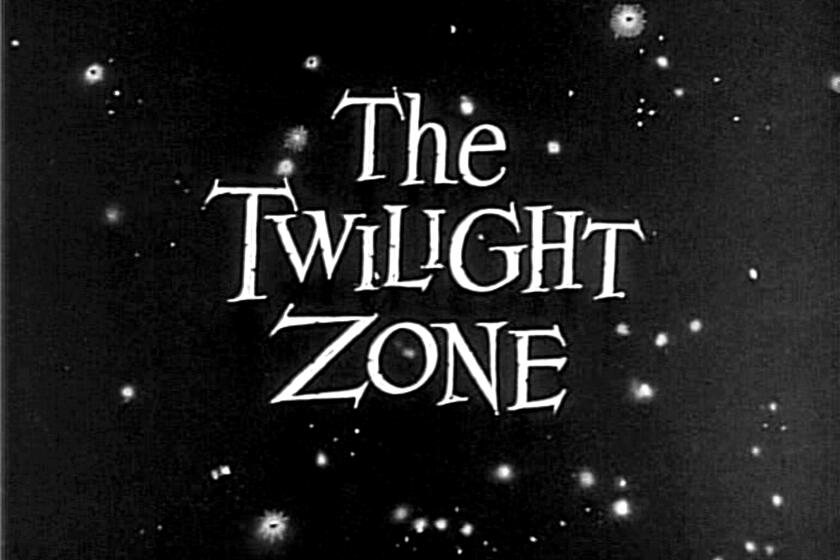Op-Ed: What I didnāt learn in medical school: How to become a writer

This year, at 46, I finally published a book. People who donāt know me often ask, āHow did you find the time to write it?ā ā as if I might confess that I had help from either amphetamines or private access to an additional dimension. But I like to point out that, for most of my life, what I really made a career out of was being a non-writer.
As a result, itās quite plausible that my real expertise lies in how not to write a book, and for prospective writers, there are lessons lurking in that failure that are just as telling as whatever I later managed to get right.
I was always driven to write. Some version of the words āwrite my bookā appeared on my endless to-do lists for almost 30 years. I had some early successes ā a play here, a short story there. But then, in my early 20s, I left my postgraduate studies in English to pursue a career in medicine. Thereās a long tradition of doctor-writers ā William Carlos Williams, Anton Chekhov, Abraham Verghese ā and I believed I would soon join them.
For a few months at the start of my medical residency, I got up every morning at 6, intending to ā you guessed it ā write my book. But residency was a marathon of hundred-hour workweeks and one tragic case after another. Before long, I desperately needed that extra sleep, and the early pages of that earnest effort were surrendered to a shoe box. They would lie in that cardboard tomb for several years.
Soon, I was into my 30s, with one child, then two, balancing my role as a 24-hour milk bar with trying to retain a sense of my own identity. All the time I thought this is the year. This year Iāll write it. But somehow each day was just another X on the calendar, one more day when Iād succeeded in caring for my babies and being a doctor and folding cloth diapers to help the environment but failed to do that thing I really needed to do. Write my book.
When my second child was just a few months old but before my third was born, I reached out to a doctor who is also a writer. I didnāt know him well, but Iād just finished his memoir and had the sudden, irrational, postpartum urge to pour my heart out to someone who might understand what I was carrying. I sent him a raw, brittle email. I told him I was grieving for what I hadnāt yet been able to do with my life. I told him there was something I knew I needed to be doing, but Iād gotten so good at not doing it that I didnāt know if Iād ever actually do it again.
An hour later, his reply landed in my inbox. He said he recognized the voice of a fellow writer. He said sometimes it was overwhelming to try to figure out where to begin our lifeās work. And then he gave me a piece of simple but life-altering advice. Start small.
I told him the same thing would-be writers often tell present-day me: I donāt want to start small! I wanted an agent! I wanted a book deal! I wanted a publisher! What was the point of starting small? But in the coming weeks, he helped me realize something important. I wanted to be published in The Times before I had done the time. It took me seven years of postgraduate education to become a doctor. Why did I think becoming a serious writer would be any different?
During the COVID-19 pandemic, it can feel like weāre on TV in āThe Twilight Zone.ā An episode about valuing a strangerās life is especially germane.
His words that day brought reality into focus. I was fixated on an end product ā holding a book in my hand. But any big achievement begins with focusing on a small action, every single day, and repeating it consistently. I needed to tweak my goal in a critical way. It shouldnāt have been āwrite my book.ā It should have just been: Write.
Ten years after that revelation, I wonder how I would have made it through the pandemic without writing. Itās become the way I metabolize my life, how I sort it intentionally. Some days itās as mundane and rote as taking out the garbage. Other days it feels profound, epiphanic, a revelation.
Once in a while, a friend or a stranger reaches out to me in a voice I would know anywhere, just the way another writer recognized it in me. They say, āIāve always wanted to write,ā and the pain in their words makes me sit up a little straighter, because I was there once, too, carrying that same deep ache in my heart.
I always give them some practical advice, things that got me past the finish line: Donāt watch Netflix. Use the Freedom app to limit access to social media. Less is almost always more.
But my most important advice is also the most obvious, and yet it is the advice all successful writers struggle to heed until one day we finally do. Begin somewhere, anywhere, every single day, for any increment of time, and keep going. Sometimes it will hurt, because writing is an act of masochism.
But it is also an act of faith ā faith that, at least once in a while, it will be a portal to another dimension, one that is worth a 30-year wait.
Jillian Horton is a writer and physician. She is the author of āWe Are All Perfectly Fine: A Memoir of Love, Medicine and Healing.ā
More to Read
A cure for the common opinion
Get thought-provoking perspectives with our weekly newsletter.
You may occasionally receive promotional content from the Los Angeles Times.











